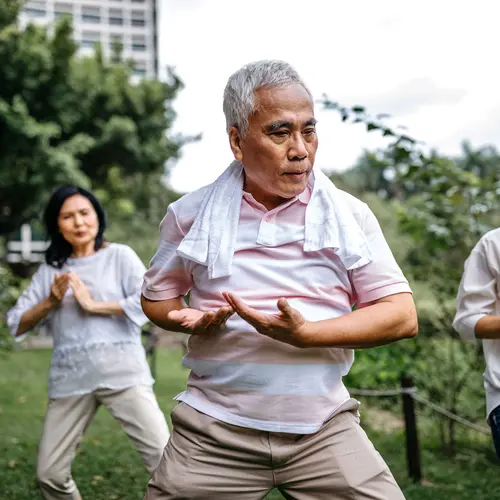How Can I Prevent the Common Cold?
A strong immune system is the best defense against the common cold. It may not keep you from getting infected, but you'll recover more quickly. Boost your body's natural resistance by eating well, getting adequate sleep, not smoking, and drinking plenty of water every day.
Minimize contact with people who have colds and wash your hands often. Airborne droplets from sneezes or coughs are the most common mode of spreading this virus, so facemasks can help prevent infection. Don't share towels, silverware, or beverages. Cold viruses survive for as long as 2 hours on doorknobs, on money, and on other surfaces. Wash your hands frequently and properly.
When you have a cold, do your best to keep it to yourself. A hearty sneeze can carry your cold virus up to 12 feet away. Cover your mouth when you cough, and sneeze into your elbow. Your hand can transmit the infection -- so wash up.
A vaccine to prevent the common cold has been difficult to make, primarily because there are more than 200 different varieties of viruses that can cause colds.
Common Cold Prevention at School
Kids lose about 22 million school days collectively because of the cold virus. If you're a parent, you know how a cold can run through a family, making everyone miserable.
If you want to craft a battle plan to prevent colds, you don't have to think long and hard about it. Just remember three simple words: Wash your hands!
There's no secret in why that works. It's all due to the way colds spread.
How You Get Infected
The main way colds get passed around is when someone who's sick coughs or sneezes. Little droplets with germs land on places like doorknobs, telephones, and computer keyboards. Or the sick person coughs or sneezes into their hands and then touches those objects.
Then you come along, happy and healthy, and touch that spot. Next, without even realizing it, you might touch your nose and mouth. In an instant, you're infected.
Why Hand Washing Works
Some viruses -- tiny living things that cause colds -- can live on surfaces for hours. Regular hand washing is your best strategy to keep them from getting inside your body. And of course, if you're the one who's sick, washing up will keep you from spreading your germs.
There's some evidence behind this. A program called Operation Stop Cough was started at a military recruit training command center in Illinois. As part of the program, recruits were told to wash their hands at least five times a day. After 2 years, the hand-washing team reported 45% fewer cases of respiratory illness, compared with sickness rates among recruits during the year before the program started.
The CDC estimates that as many as 56,000 people die from the flu or flu-like illness each year. The CDC also says the simple act of hand washing is the single most important means of preventing the spread of viral and bacterial infections. Yet some studies reveal that many Americans using public restrooms don't wash their hands before leaving. People also forget to wash their hands before preparing meals, and they grab snacks without thinking of washing their hands beforehand. If you want to help prevent colds, just stop -- and wash your hands.
How Should I Wash My Hands for Cold Prevention?
The simple friction that occurs when you rub skin against skin while using warm water and soap followed by thorough rinsing and drying can get rid of most potentially harmful germs.
Many of us get so busy, we simply forget to wash our hands the right way. Here's the drill:
- First, wet your hands with water. Then add soap.
- Rub them together vigorously for 20 seconds. Make sure to rub the wrists, between the fingers, and under the fingernails. When you have time, use a nail brush, as germs often hide under nails.
- Rinse your hands thoroughly and dry with a clean paper towel or air dryer.
- If you’re in a public restroom, shut the faucet off with a paper towel. Try to push the door open with your shoulder, or use another paper towel to turn the knob.
How Much Hand Washing Is Enough to Prevent Colds?
You should wash your hands often throughout the day. For example, do it before and after you eat, after using the bathroom, after school, and after handling any raw meat, unwashed vegetables, or garbage.
Also wash your hands after coughing, sneezing, blowing your nose, or touching your pet. If you're babysitting, wash before and after changing a baby's diapers and before and after feedings.
What if I'm Not Near a Sink?
Keep an alcohol-based sanitizer for hands if a sink is unavailable. It should be at least 60% alcohol.
Rub the entire surface of your hands, fingers, and wrist with the sanitizer until dry. You can use this throughout the day if you're not near a bathroom. Follow up with a thorough hand scrub when you're near a sink to prevent buildup of the sanitizer.

